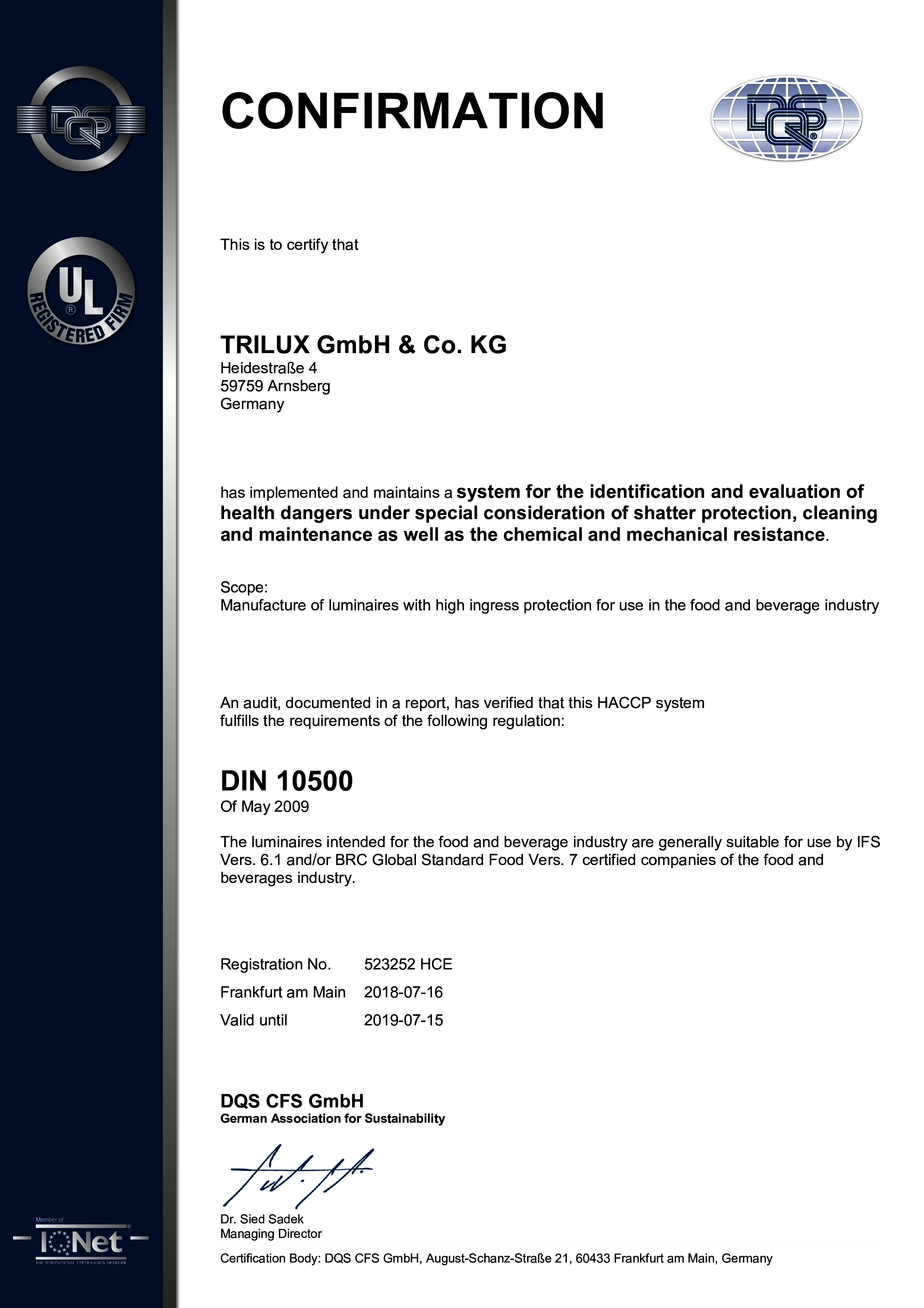Internationally, there are high requirements regarding hygiene and break resistance of all components used in manufacturing areas in the food and beverage industry that could lead to contamination of the manufactured products. This includes lighting, since light is required in all areas of this industry – in incoming raw material inspection, in machine and plant control as well as in quality control for finished products.
Food industry
International standards define high requirements regarding food purity and demand extensive measures when contamination occurs in commercially available products. The same regulations therefore also cover equipment for production facilities and define concrete requirements. In particular, the IFS (International Food Standard) originating from the United States of America as well as the BRC Global Standard Food originating from Great Britain are applied.
Every food industry company is required to introduce an HACCP system (Hazard Analysis Critical Control Point) to minimise risk. For parts of production plants, there are no approvals or individual certifications; yet the postulation remains that the supplier be aware of the standards to be observed and recognise the required rules for identifying and evaluating health risks with special consideration to shatter protection, cleaning and maintenance as well as chemical and mechanical resistance. The report of a performed audit documents that the HACCP system introduced at the supplier complies with the requirements of DIN 10500.

Figure 3.221: DQS certificate, food industry luminaires
On this basis, manufacturers can confirm that certain products are suitable for use in food companies certified according to the aforementioned standards (see also figure).